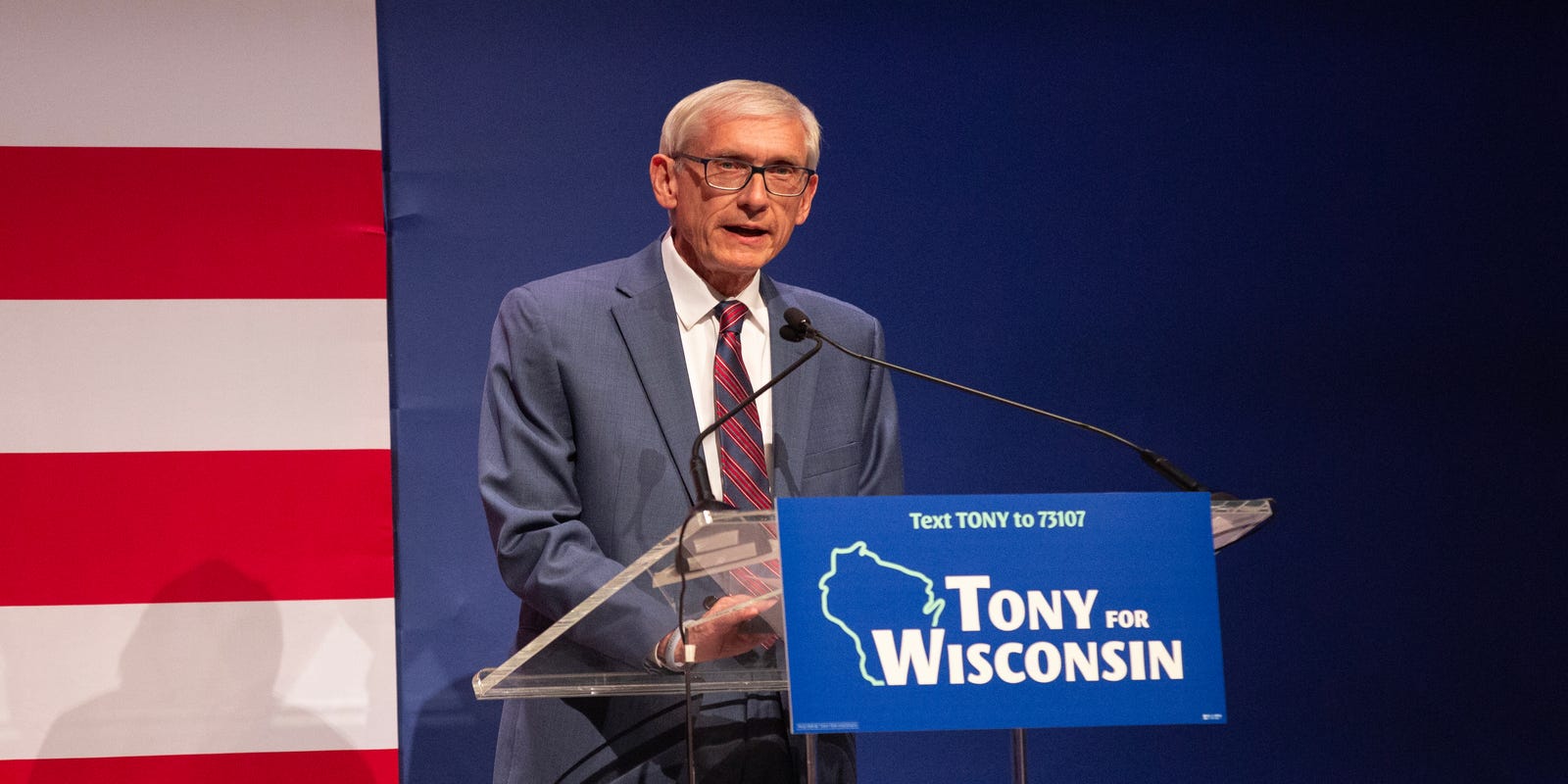
Wisconsin Gov. Tony Evers vetoed a bill Tuesday that would have banned transgender and gender nonconforming youth from participating on school athletic teams that align with their gender identity.
The bill would have forced transgender and gender nonconforming students to instead play on teams that match the gender they were assigned at birth. Twenty-five states around the country have passed bans or restrictions pertaining to trans athletes in just the last few years.
“This type of legislation, and the harmful rhetoric beget by pursuing it, harms LGBTQ Wisconsinites’ and kids’ mental health, emboldens anti-LGBTQ harassment, bullying, and violence, and threatens the safety and dignity of LGBTQ Wisconsinites, especially our LGBTQ kids,” Evers, a Democrat, said in his veto message.
Gov. Tony Evers speaks to supporters during an election night event at The Orpheum Theater on November 8, 2022 in Madison, Wisconsin. On Tuesday, April 2, he voted a bill aiming to restrict trans kids from playing on sports teams that matched their gender identity.
Transgender athletes: Four tell their stories in their own words
Gov. Evers always promised to veto the Republican-led legislation
Evers has promised since the introduction of the bill last year that he would veto it, along with another bill that would ban gender-transition treatment for minors.
Prep for the polls: See who is running for president and compare where they stand on key issues in our Voter Guide
“I will veto any bill that makes Wisconsin a less safe, less inclusive, and less welcoming place for LGBTQ people and kids, and I will continue to keep my promise of using every power available to me to defend them, protect their rights, and keep them safe.”
The bills were contentious, drawing hours of testimony from both supporters of the bill and opponents. Republicans continued to pursue the legislation because the lawmakers thought “they’re the right thing to do for Wisconsin,” said Assembly Speaker Robin Vos when the bill was introduced.
Republicans said the bills aimed at protecting children and girls participating in athletics.
“Men have major physical advantages. They’re bigger, they’re stronger, they’re faster,” Republican state Rep. Joel Kitchens said during testimony last year. “Title IX was created so that women can have the same access to the same advantages, the same character building that takes place (in sports) that men always have experienced.”
One of the bill’s authors, also a Republican, blasted Evers’s veto Tuesday afternoon.
Those against the bills said the proposals could harm transgender and nonbinary youth and worsen the mental health challenges and stigma they face. A number of states across the country have introduced similar bills targeting the LGBTQ+ community, including limiting the rights of transgender youths, across the United States.
Since 2020, 25 states have passed restrictions on trans youth in sports
According to data compiled by the Movement Advancement Project, 24 states have passed laws banning transgender youth from participating in sports on teams that match their gender identity. Alaska has also has regulations on trans youth in sports.
Most laws cover kids in grades K-12, but some also target college sports.
Idaho was the first state to pass such a ban, but according to MAP, enforcement is currently blocked by a temporary injunction. Legal disputes are also currently blocking bans in West Virginia and Utah. A court permanently struck down the ban in higher education in Montana, but the ban in K-12 sports remains.
In addition to state laws, local high school athletic associations have their own rules in place.



